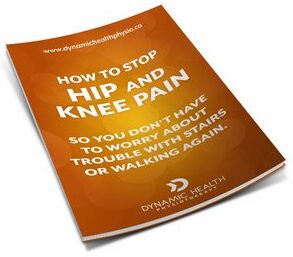- May 8, 2023
PHYSIOTHERAPY MONTH – WHAT DOES PHYSIOTHERAPY LOOK LIKE AND HOW CAN IT HELP YOU
Physiotherapy Starts With Effective Communication
Has this ever happened to you before?….
You decide you need help with something because it’s out of your wheelhouse. You have a problem that needs solved and you want to talk to someone who can help you fix it.
Maybe it’s a computer virus that has locked up your laptop and you want an expert to look at it. Maybe it’s a home renovation that requires a contractor. Or maybe it’s health related and you want to take to a healthcare provider that can help you resolve the issue.
Whatever the case, you’ve chosen to reach out and contact an expert for help.

If you’re like most people, when starting the search for the right person in any field, it can be overwhelming. Everyone has an opinion on what you should do and who you should go see. For computers and home improvements, you at least know which trades you are likely to call – a computer repair shop and a contractor.
For healthcare on the other hand, just picking a profession, let alone a specific clinic or professional, can be daunting.
If you do settle on physiotherapy but you don’t really know what a physiotherapist does, it can be hard to know if you’re making the right decision and if they are going to have the skills to help.
And what will your doctor say? Plus, what happens if your injury or issue comes back again later? Do I need to submit on my own to get it covered by insurance?… so many questions to answer!
This is why I believe communication is so critical. Right from the first phone call or conversation in the clinic, all the way through to full recovery and beyond, the ability to communicate effectively is likely the MOST important skill a physiotherapist can have.
Here are the 6 points throughout your journey with physiotherapy that I think require a highly skilled team of healthcare providers that know how to communicate effectively.
THE FIRST PHONE CALL AND MEETING:
Along with all clinic staff, physios need to be able to listen carefully to your health history, work closely with you to determine your immediate needs and goals, and then help you make the right decision and plan for the best possible health outcomes. And that’s just the start!
THE TREATMENT PLAN AND REGULAR REASSESSMENTS:
We believe as physios (and by extension – the rest of the physio team) we need to be able to listen to truly understand what is going to work best for you, and then speak openly and effectively about your treatment options so you can make the best decision for your health.
It’s also our responsibility to be able to continue to communicate with you throughout treatment so that you know: 1) What goals we are currently working towards, 2) What the treatment and exercise program are doing to help you achieve that goal and 3) What progress has been made so far – because it’s often hard to see the progress you’ve made when working towards a goal.
TALKING TO YOUR OTHER HEALTHCARE PROVIDERS:
We believe that healthcare practitioners do better work when we all work together, collaboratively. As physiotherapists, we need to be able to talk to the other practitioners that are on your healthcare team. At Dynamic Health, we do this multiple times a day in the clinic with our massage therapist. Outside the clinic we also regularly communicate with doctors, dentists, other allied health professionals, personal trainers, and more. We strive to keep the lines of communication open so that we don’t get too siloed, or cut off from one another, in our approach to your care.
TALKING TO YOUR INSURERS, CASE WORKERS, AND OTHER PARTIES:
While you may have guessed the importance of a physio communicating with you or your doctor, one that sometimes gets overlooked is the need to talk to all the other parties that are involved in your care. This becomes evident when you need to get things like treatment approval, bracing, orthotics, specific medical or exercise equipment, etc. Staying on top of this can make all the difference when insurance companies and other third parties can assist with the delivery of quality care.
DISCHARGE FROM THE CLINIC:
As you finish up your treatments and are preparing to be discharged, communicating the importance of the final steps of care and the need for continued maintenance exercises often is the difference between a flare-up and actually maintaining the progress you’ve made. It’s our job to convey the important message that the final steps of physiotherapy are just as necessary for sustained improvements in your strength, mobility, and overall activity.
FOLLOW-UP AFTER CARE:
Finally, staying in touch after you have completed active care is important for ongoing communication. This is the point where things can sometimes go wrong for patients, yet they may not feel comfortable calling back to say they’ve had a setback. Often, life just gets too busy, and aches and pains get put on the back burner. That’s why we make it a point to check in and be sure that a flare-up doesn’t leave you feeling like you’re stuck.
Seeking help from a physiotherapist can feel overwhelming, especially when you haven’t been to one before or you’ve had a bad experience in the past. This is why communication plays a critical role in ensuring that you receive the best care and outcomes possible, from start to finish.
Throughout the journey with physiotherapy, these six points of communication are essential for effective treatment. These include the first phone call and meeting, the treatment plan and regular reassessments, talking to other healthcare providers, insurers, and case workers, discharge from the clinic, and follow-up after care. With our highly skilled team of healthcare providers that know how to communicate effectively, patients can be confident that they are receiving the care they need to achieve their health goals.
If you are experiencing pain, it is important to speak to your physiotherapist to find out what is causing your symptoms.
We have free physiotherapy discovery visits, where you can speak to a member of our team, ask any questions that you have, and find out what’s stopping you from finally getting some relief.
We can also help you understand how to get stronger and healthier than ever, so you are able to make the most of your day, stay active with friends and family rather than feeling stiff and sore, and even sleep better once the pain or stiffness isn’t waking you up in the night anymore.
Alternatively, you can always call us at 506-404-1565 if you prefer to talk over the telephone.

Have Questions About Massage Therapy

Need some help with your back pain?

Struggling with neck or shoulder pain?
Click the button below to claim your free copy of this neck and shoulder pain tips report!

